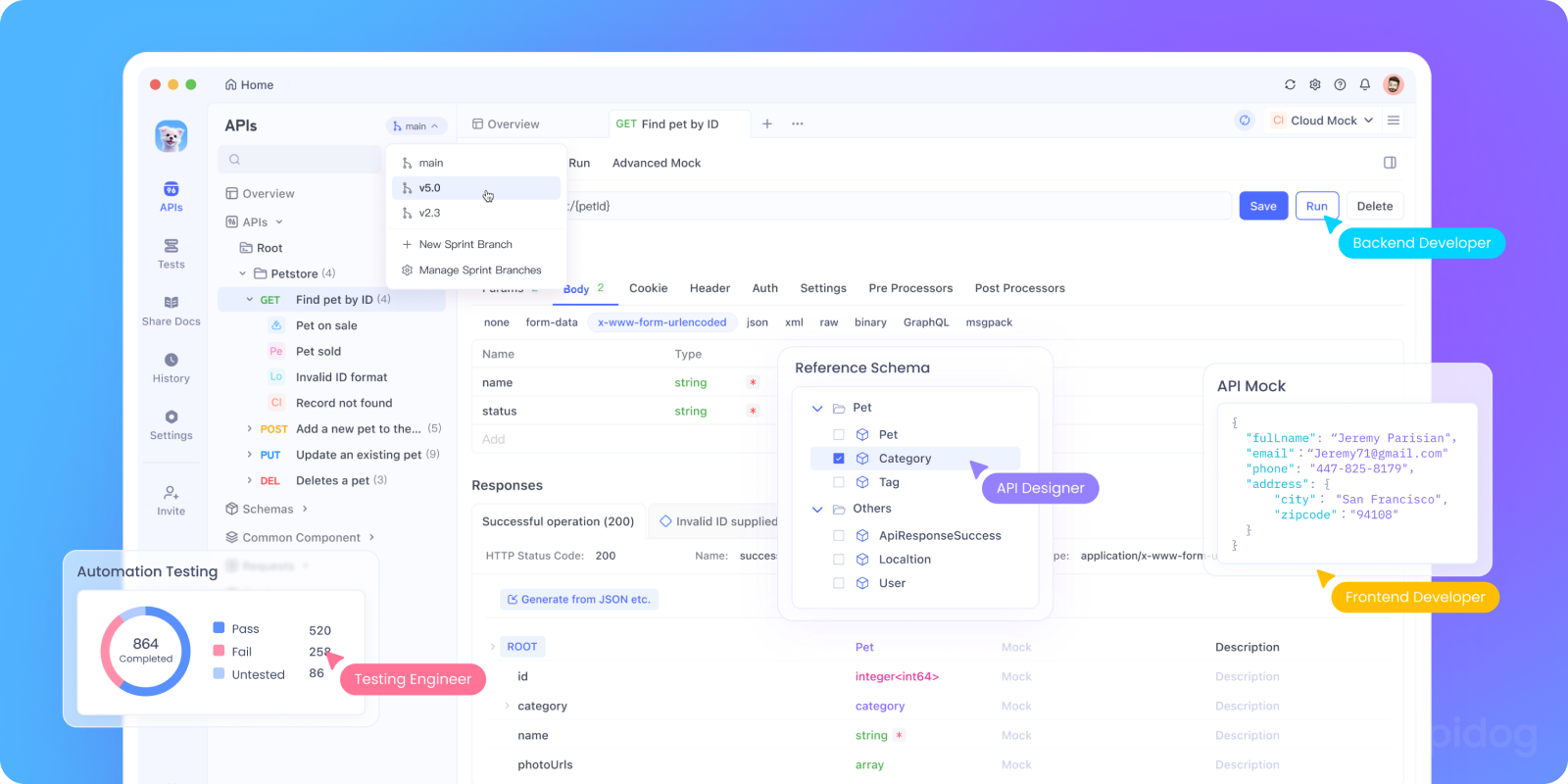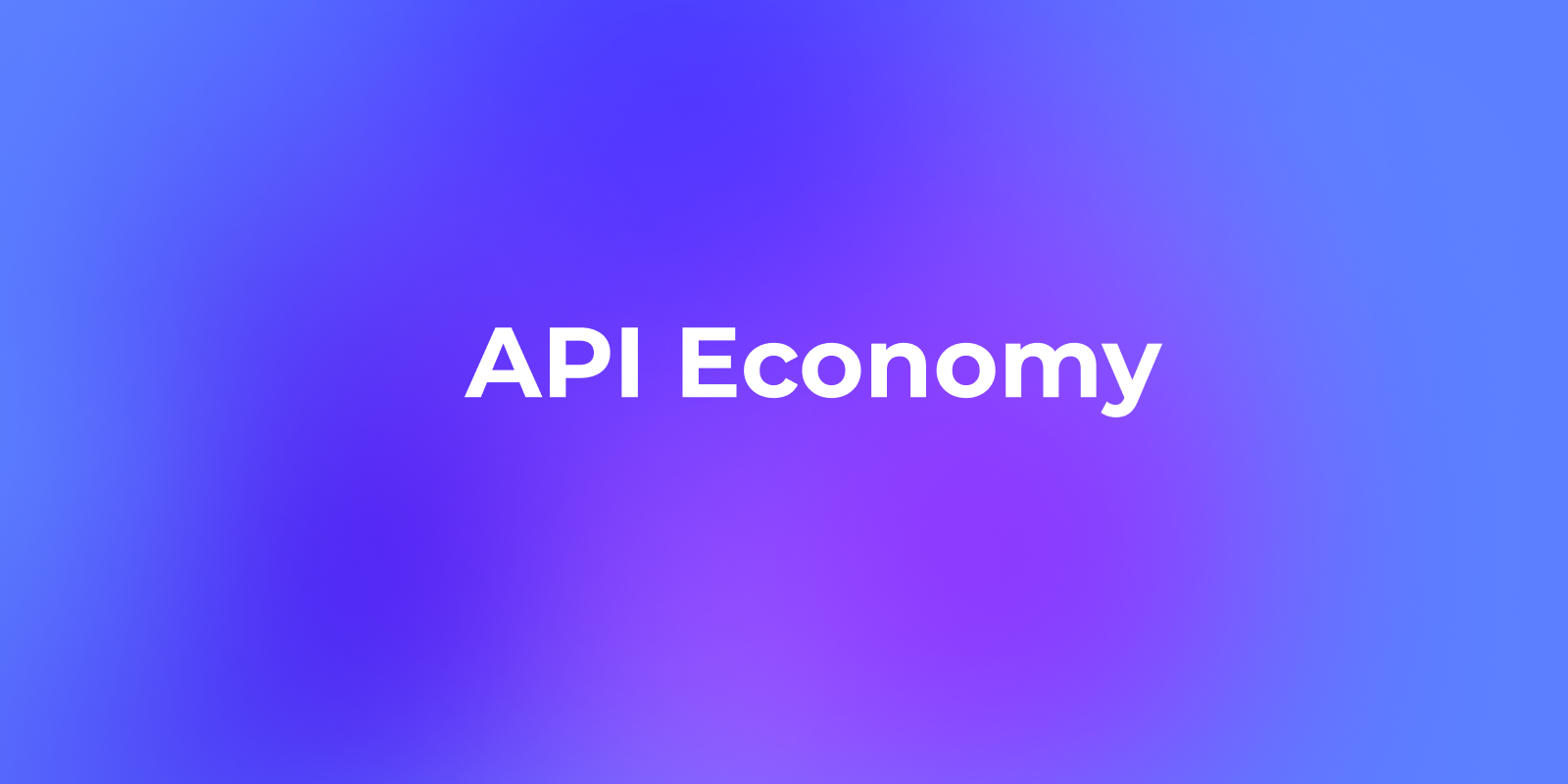APIs (Application Programming Interfaces) have quietly transformed the way businesses operate and innovate in the digital age. Today, we talk about the "API economy" a term that captures the new digital marketplace shaped by APIs acting as powerful connectors, facilitators, and enablers of business value. If you’ve spent any time in the tech world lately, you’ve probably heard people throwing around the term API economy like it’s the hottest thing since cloud computing. But what does it actually mean? And why is everyone from startups to Fortune 500 companies rushing to be part of it?
In simple terms, the API economy is about how businesses create value, generate revenue, and build entire ecosystems by exposing their application programming interfaces (APIs) to partners, developers, or even the public.
And here’s the kicker: this isn’t just a tech trend, it’s a massive shift in how the digital economy operates. This blog post will explain what the API economy is in simple, explore why it’s so important, and show how it is reshaping industries globally. Along the way, you'll also learn how the API economy is driving collaboration, innovation, and revenue growth in exciting ways.
Want an integrated, All-in-One platform for your Developer Team to work together with maximum productivity?
Apidog delivers all your demands, and replaces Postman at a much more affordable price!
What Exactly Is the API Economy?
Simply put, the API economy is the ecosystem created by the exchange of digital data, functionality and services through APIs. This ecosystem includes API providers who expose services and data and API consumers who use those APIs to build applications, enhance experiences, and offer new products or services. In other words, it’s when APIs become business products rather than just technical tools.
APIs are like digital bridges that allow different software systems to talk to each other smoothly. Think of APIs as Lego bricks. Alone, they’re useful but when you combine them, you can build something much bigger, faster, and more powerful. Companies are realizing that by exposing their APIs, they can:
- Allow partners to integrate directly with their systems.
- Create new revenue streams.
- Reach entirely new markets.
What makes the API economy powerful is that it extends beyond a single company. APIs can connect multiple organizations, partners, and developers, creating an environment where data and services flow freely yet securely.
In today’s world, businesses no longer buy or build all software capabilities internally. Instead, they rely heavily on existing APIs to accelerate development, improve customer experiences, and open new revenue streams.
Why the API Economy Is Booming
The API economy didn’t appear overnight. Several trends have pushed it into the spotlight:
- Cloud and SaaS adoption: Software is no longer shipped on CDs; it’s delivered over the internet, and APIs are the glue holding it together.
- Mobile-first world: Every app on your phone is powered by APIs in the background.
- IoT explosion: Devices need APIs to talk to each other and to the cloud.
- AI integration: Machine learning models rely on APIs for deployment and scaling.
The rise of the API economy is a natural evolution of business in the digital age. Here’s why it’s so important:
- It enables platform business models. By sharing core capabilities via APIs, companies become platforms that third parties can build upon, creating vast ecosystems of innovation.
- It lowers barriers to entry. Startups can compete with big firms by integrating APIs instead of building everything from scratch.
- It fuels collaboration. APIs allow businesses to work together seamlessly, integrating services to deliver greater value to customers.
- It drives faster innovation. Developers can leverage existing digital services to create new apps and solutions faster.
- It creates new revenue opportunities. Companies can monetize APIs by charging for usage or offering premium tiers.
For example, Amazon Web Services (AWS), one of the pioneering API economy platforms is essentially a giant collection of APIs providing access to cloud infrastructure services. Similarly, companies like Google Maps, Stripe, and Twilio have APIs that millions of developers use to add mapping, payments, and communication capabilities to their apps.
The result? APIs are no longer a “nice-to-have” they’re a core business asset.
Breaking Down the API Economy: How It Works
At its core, the API economy thrives on the value exchange between two main participants:
- API Providers: These are organizations that create, manage, and expose APIs to share their data, services, or functionalities.
- API Consumers: These can be internal developers, external partners, or third-party developers who use these APIs to build apps, integrate systems, or enhance offerings.
By adopting an API-first mindset, businesses design services with APIs as their primary interface, making them accessible and reusable across multiple channels and partners.
APIs come in various types:
- Internal APIs: Used within an organization to connect internal systems.
- Partner APIs: Shared with specific partners to enable collaboration.
- Public APIs: Open to external developers and the public, often driving ecosystem growth.
The API economy encompasses all these interactions, fostering an interconnected digital marketplace.
The Benefits of the API Economy
The API economy delivers a wide range of benefits for businesses and developers alike:
- Accelerated Digital Transformation: By integrating APIs, companies break down data silos and speed up adoption of new technologies.
- Improved Customer Experience: APIs enable real-time data sharing and customization, leading to personalized and seamless user experiences.
- Increased Agility and Flexibility: Businesses can quickly adapt by swapping or adding APIs without overhauling entire platforms.
- Revenue Growth and New Business Models: APIs open monetization channels through subscriptions, pay-per-use, or freemium models.
- Greater Innovation: Developers can combine multiple APIs to create novel applications, products, and services.
- Level Playing Field: Startups and SMBs can compete globally by leveraging the same APIs as large enterprises.
Examples of the API Economy in Action
You interact with the API economy daily, even if you don’t notice it. Here are some examples:
- Stripe: Processes online payments for thousands of businesses through its APIs.
- Google Maps API: Lets developers embed location data into apps.
- Twitter API: Powers third-party tools, analytics dashboards, and integrations.
- Shopify API: Allows app developers to extend the e-commerce platform.
These companies don’t just provide software, they sell API access as a product.
1. FinTech Revolution
Financial institutions expose APIs that allow third parties to access payment processing, account information, or fraud detection services securely. This enables innovative apps and platforms to offer new financial services rapidly.
2. E-commerce and Logistics
E-commerce platforms integrate APIs from payment gateways, shipping carriers, and marketing tools to automate transactions, track shipments, and personalize promotions, creating smooth shopping journeys.
3. Smart Cities and IoT
Cities use APIs to share real-time data such as traffic conditions or energy consumption. Developers build apps that optimize delivery routes or reduce energy usage, improving urban life.
How Apidog Supports You in the API Economy

Operating in the API economy means agility, security, and reliability are paramount. That’s where Apidog comes in.
Apidog is an all-in-one API testing and management tool that helps you:
- Customizable & AI-powered API documentation that enables you to monetize your APIs easily.
- Automate API testing to ensure your APIs work as expected and are secure.
- Collaborate with your team on building comprehensive test cases relevant to business needs.
- Monitor API performance and security to quickly spot issues or vulnerabilities.
- Integrate with CI/CD pipelines for continuous delivery and improvement.
By using Apidog, you can bring speed and confidence to your API development and management processes, keys to thriving in the API economy.
Challenges to Consider in the API Economy
While the API economy offers vast potential, it also presents challenges:
- Security risks: More APIs mean increased attack surfaces; robust security practices are essential.
- Governance: Without clear policies, APIs can become unmanageable or inconsistent.
- Performance and reliability: APIs must perform well under varying loads to maintain trust.
- Versioning: Managing API versions is crucial to avoid breaking integrations.
- Monetization strategies: Setting the right pricing and access models requires careful thought.
- Over-reliance on third-party APIs: If they change or shut down, your product could break.
Addressing these challenges with best practices is vital to long-term success. That’s why API management, monitoring, and testing tools like Apidog are crucial. They help you ensure your APIs stay secure, reliable, and well-documented, even as they evolve.
How to Succeed in the API Economy
If you want to thrive, you need a strategy:
- Design for developers: Clear documentation, consistent endpoints, and sample code.
- Prioritize security: Use authentication, rate limiting, and data validation.
- Think about monetization: Will you charge per request, per month, or via tiered plans?
- Measure usage: Analytics help you understand what’s working.
- Evolve: Keep improving based on feedback.
Apidog can help: it generates interactive documentation, automates testing, and even supports mock servers for developer onboarding.
Looking Ahead: The Future of the API Economy
The API economy is still growing, driven by trends like cloud computing, AI, IoT, and microservices. We can expect:
- API-first companies: Businesses built entirely around API products.
- Stronger API regulations: Especially around privacy and data sharing.
- Hyper-personalization: APIs delivering tailored services in real-time.
- Deeper integration of AI-powered APIs that enhance automation and insights.
- Expansion of API marketplaces enabling easier discovery and monetization.
- More industries embracing API-driven ecosystems beyond tech, including healthcare, education, and manufacturing.
This ongoing evolution will continue lowering entry barriers, accelerating innovation, and reshaping how businesses create and capture value.
Wrapping Up
The API economy represents a fundamental shift in business thinking, from building standalone products to creating interconnected platforms through APIs. The API economy is transforming how businesses operate. APIs are no longer hidden in the background; they’re the products themselves. It democratizes access to data and services, enabling companies of all sizes to innovate, collaborate, and monetize like never before.
If you’re building APIs today, you’re not just writing code, you’re potentially creating the foundation for a new business model. As you navigate this exciting landscape, don’t forget to arm yourself with the right tools. Download Apidog for free today to streamline your API testing, improve security, and manage your APIs effectively. With the API economy, the possibilities are limitless so get ready to join, innovate, and grow!
And remember: success in the API economy isn’t just about having an API, it’s about having a secure, well-documented, developer-friendly API.



